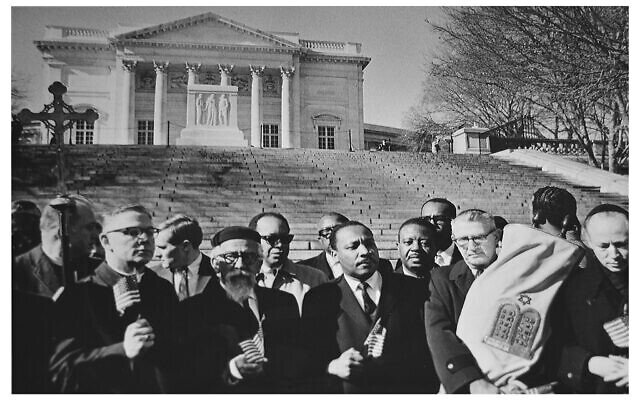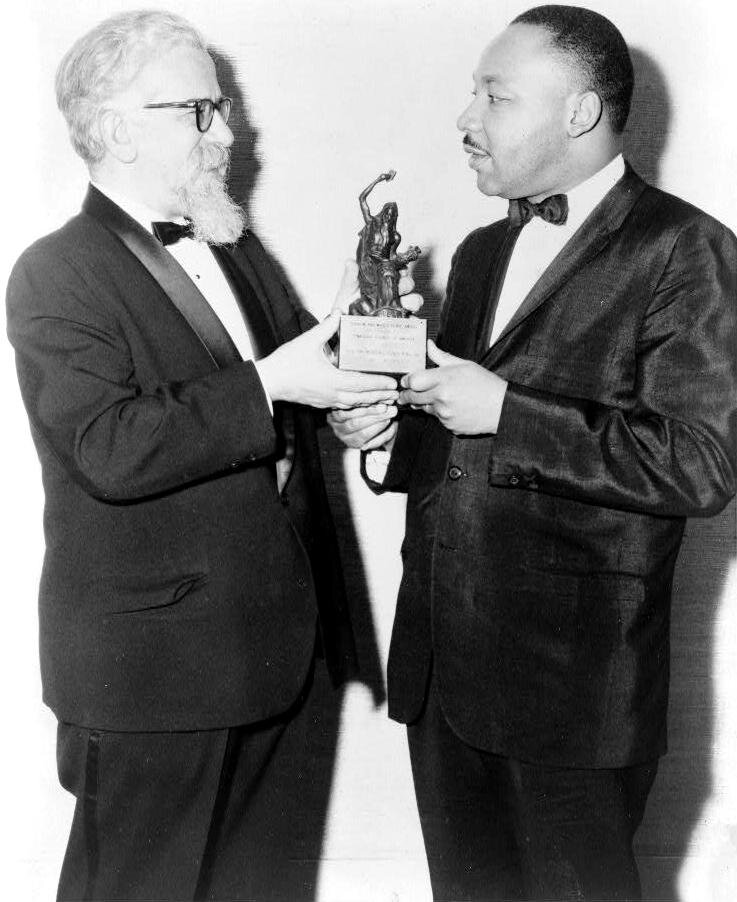
“My father would be horrified not only by the murder of George Floyd but also by the murder of so many other black people. It would bring him back to his own life in Nazi Germany and what happened to his family.
When I was growing up, he would always tell me that poverty meant there was a system in place to keep you without money, and he would talk about it in personal terms because we lived at the edge of Harlem, and that powered his struggle against racism.”
—Dr. Susannah Heschel, in “Crossing the bridge to hope and healing,” by David M. Shirbman for Jewish Journal (1 July 2020)

“The spirit of George Wallace is very much alive in high places. Bull Connor has been dead for 30 years, and police officers are still putting their knees on the necks of unarmed Black people. …
In past generations, there were iconic leaders. Now, the movement is in the streets.”
—Rabbi Jonathan Prinz, “The Tenacity of Racism and Its Challenge to Religious Faith,” 24 August 2020.




…And he would be very glad to see such a broad coalition marching right now, all over the country, happy to see so many Americans – so many Jews – supporting their black neighbors. But he would be outraged that blacks were dying of COVID-19 at rates far greater than whites. He would be asking us to confront what white supremacy was, and he would say that we were called upon not only to protest but also to heal and to hope. That is something that my father would offer.
—Dr. Susannah Heschel, in “Crossing the bridge to hope and healing,” by David M. Shirbman for Jewish Journal (1 July 2020)
“Unless you understand despair, you cannot offer hope.”
—Dr. Susannah Heschel, “The Tenacity of Racism and Its Challenge to Religious Faith,” 24 August 2020. • Watch the dialogue recording»
Learn more about the work at JMJP:
Previous Next